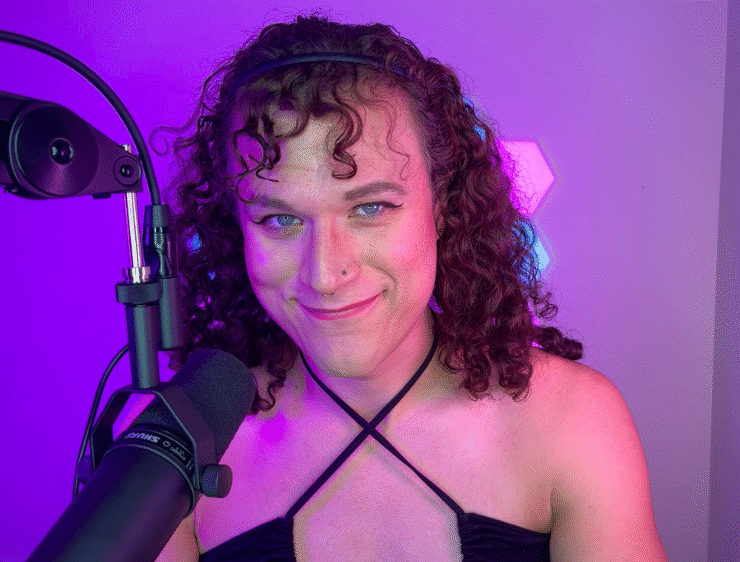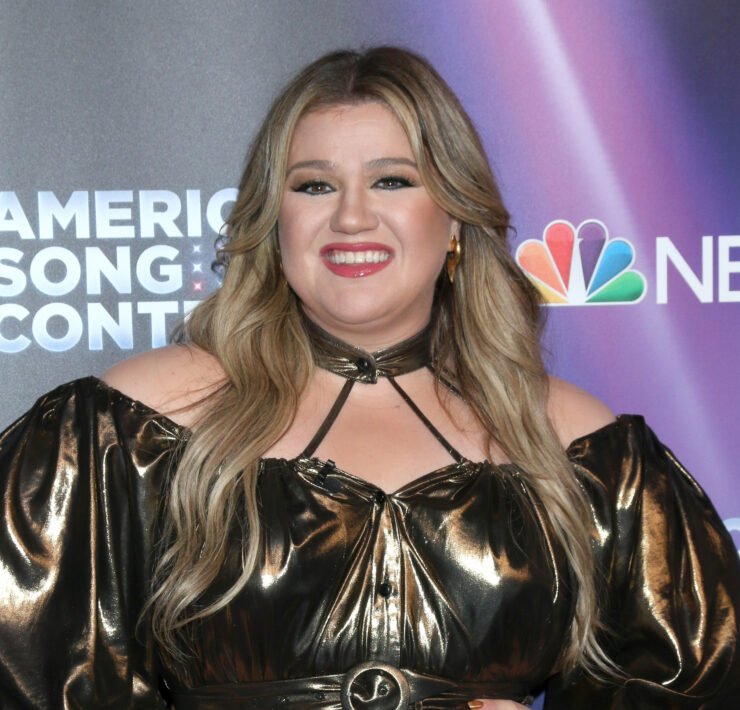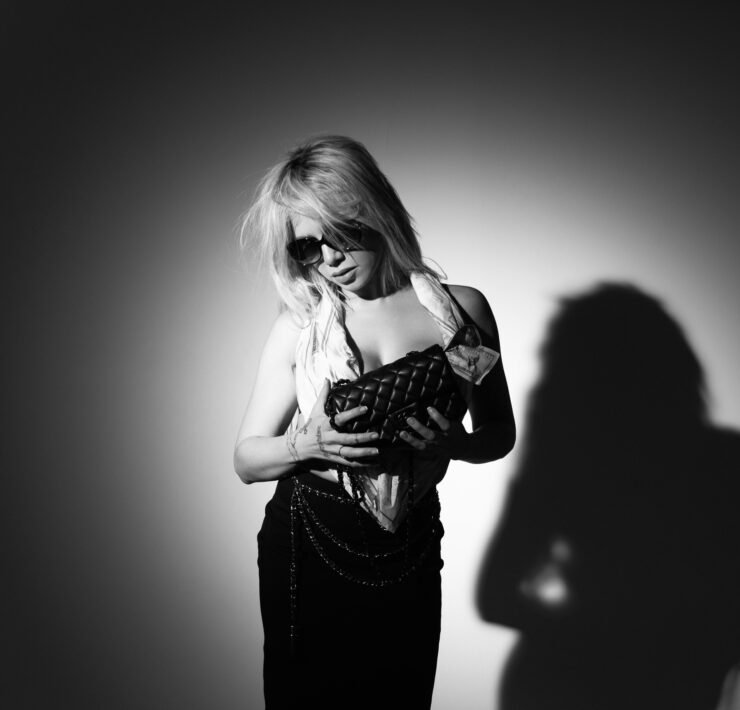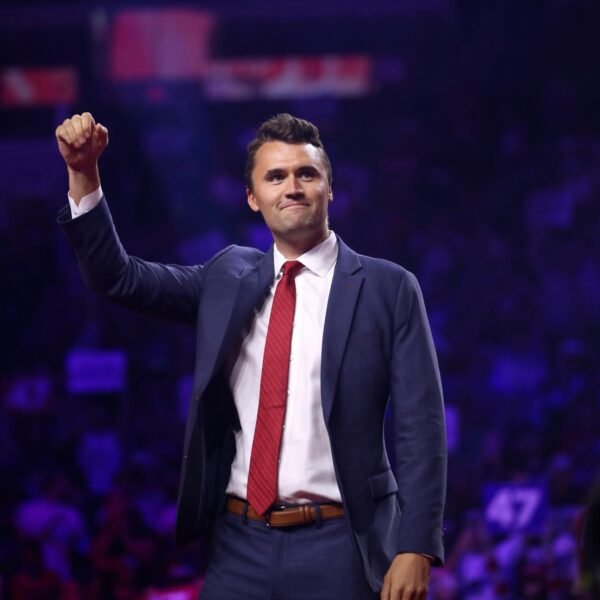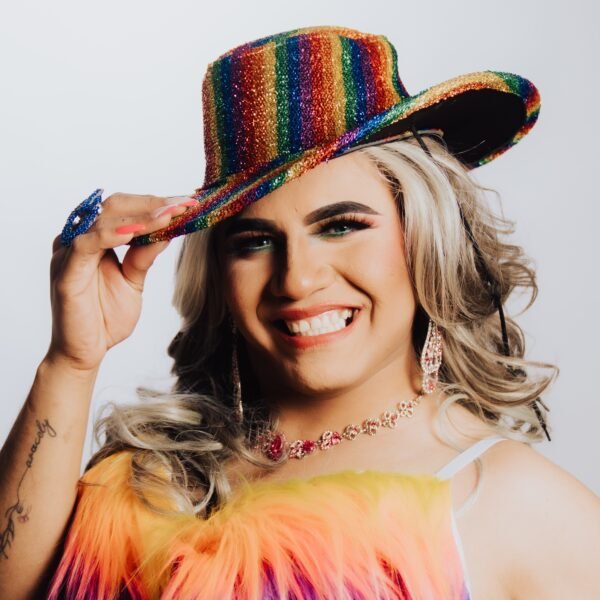Justin Tranter: Our Favorite Songwriter and Social Advocate

Denny Patterson is a St. Louis-based entertainment and lifestyle journalist…
You may not know Justin Tranter by name, but you most certainly know their music.
As one of the music industry’s most prolific songwriters, Tranter has penned hits for countless artists including Imagine Dragons (“Believer”), Lady Gaga (“911”), DNCE (“Cake by the Ocean”), Halsey (“Bad at Love”), Justin Beiber (“Sorry”), and many more. As the former lead singer of the glam-rock band Semi Precious Weapons, Tranter is well-versed and experienced in bringing unconventional flair and unflinching honesty to whatever piece they are creating.
In addition to their passion for music, Tranter is also a prominent and outspoken advocate for several causes such as arts education, animal rights, and most importantly, the LGBTQ community. They have been honored for their work by the ACLU, and they currently sit on the board of GLAAD, helping raise thousands of dollars for the organization every year.
OFM had the opportunity to catch up with Tranter and talk more about their passion for music and advocacy, as well as how they fell into the world of songwriting, current and upcoming projects, and how music is a universal language.
Justin, you are known as one of the most prolific songwriters in the music industry, but before that, you were the lead singer of the rock band Semi Precious Weapons. How exactly did that switch happen?
The switch happened based on survival. I worked retail for many years, which I loved, but the band had been dropped from our fourth record deal. I was like, I guess it’s time to work in retail again. I guess the dreams of music are coming to an end, but then I remembered that the band had a publishing deal. I was like, let me ask my publisher and see if they would put me in sessions to write songs for other people.
I was a fan of Linda Perry in 4 Non Blondes, and then Linda Perry as a songwriter with songs like “Get the Party Started” and “Beautiful.” Even though her band had a huge hit with “What’s Up,” I loved that she could go from a rock band to songwriting. I thought I could do that, and I’m a big fan of songwriters. I seriously geek out over them. So, when I asked if they could put me in some sessions, luckily, it started to work. They saw that songs were getting cut and placed, and they gave me a little stipend of a couple thousand a month, so I wouldn’t have to get a day job and I could keep writing.
Within a year of writing for other people, I had my first hit with Fall Out Boy. It happened very quick. I realize now that lots of people can be in the songwriting circuit for 6-7 years before they have their first hit. So, the transition happened on my last-ditch effort to try to make money as a musician. I went to high school for musical theater and college for songwriting, and even though I didn’t mind retail, I hoped to make money in music. I’m very fortunate that it happened for me.
 So, you’ve always had a passion and desire to pursue some kind of career in music?
So, you’ve always had a passion and desire to pursue some kind of career in music?
Always, yes. I come from a tennis family, and I’m the only person in my family that did not make their living in a tennis club. Tennis coaches, my mom ran tennis leagues, lots and lots of tennis in the family. I loved tennis as a kid, but then I got the courage in seventh grade to audition for the musical because it was Annie, and that’s my favorite musical. I was already getting bullied, but when they announced that the musical was Annie, I was like, fuck it! They can’t keep me from Annie! Once I did that, there was no going back. Luckily, I found my calling.
You have worked with several high-profile artists including Lady Gaga, Dua Lipa, Imagine Dragons, Justin Beiber, and Selena Gomez. What do you always take away from these collaborations?
That it has nothing to do with me, and that’s amazing. Art that is about you is amazing and very valid, and I did it for many years. I’m sure I’ll make art based on my own thoughts and heart again at some point, but currently, I make art based on other people’s stories and points of view. I am helping other people be the best versions of themselves, and that is what I take away from all those collaborations every single time.
Do you believe pop music is still a powerful universal language?
Pop music means popular, right? We have moments when hip-hop takes over, and there are times when country music takes over, but I think there’s always going to be a universal language of songs that speak to the masses. Writing pop songs is very hard to do. It’s very hard to distill an idea down to, at the most, three-ish minutes. Distill something down that the whole world wants to relate to and listen to over and over.
It’s like when we think of folk music, which is about what people are connecting and relating to in that moment. I wouldn’t call all big pop hits folk music because some of them are more about passive enjoyment than speaking to the people, but when you look at people like Sizza and Billie Eilish, these people are really speaking to the moment, and I think that is so powerful. I get sent at least once a week a video of a young kid, normally a young boy, singing along to “Believer” by Imagine Dragons. This music speaks to people, young and old, in these very subconscious, deep ways.
Seven-year-old boys don’t know why they love Imagine Dragons, but they fucking do. It makes me very proud as a very queer person to be writing anthems for little angry straight boys (laughs). So, pop music will always have a place. Whatever the genre is, whether it’s hip-hop, R&B, country, or traditional pop, it’s always going to have a place. There’s something so great about almost everyone in the world hearing this song. It connects to people, and it connects them to a time, a place, or whatever. It’s beautiful.
Who are some bucket list musicians you would love to work with someday?
Stevie Nicks is a big one, and obviously, Beyoncé would be amazing, but a lot of times, she is working with young up-and-coming writers and producers of color. I think the way she’s curated a lot of new talent is very important, so I’m not trying to shove my way in there when she’s so good at bringing in new people.
I’d also love to work with Amy Sherman-Palladino. She’s not a musician, but working with her on something would be insane. Courtney Love and I also collaborated before, but the song never came out, but we’re now working on other stuff together. So, that bucket list is currently being checked because I think she is possibly one of the best lyricists of all time. I’m happy to be a part of her world in some way.
 Is there anyone you’ll never work with again?
Is there anyone you’ll never work with again?
Not in terms of artists, but there are certain producers and writers whose standards of decency does not align. If you’re a pretty bad person, I’ll have no interest in working with you again.
An artist you are currently collaborating with is TALK, and you will be executive producing his entire forthcoming album. What can you tell us about this project?
TALK, I would say, is one of the top three singers I’ve ever had the pleasure of being in the studio with. His voice is fucking insane. He’s straight, but he’s so vulnerable, kind, and open-hearted – a version of masculinity the world really needs to witness. TALK is like a healer without ever intending to be. He just wants to make great music, but he’s out here healing motherfuckers by just existing, and it’s great. His music is in the alternative rock meets alternative pop space, which I feel very at home in with my background and my own band. I am very excited and proud to collaborate with TALK because he is bringing something to the world that I believe is very much needed.
You have also worked on music for film and television, and one of your most recent projects was writing 30 original songs for Paramount+’s Grease: Rise of the Pink Ladies! What did you enjoy the most about working on that show?
Although the music business is corporate, there’s maybe 3-4 people that might comment on a song or give you notes. My experience with the TV world, there were 43 people who had to approve every lyric and melody, so what I enjoyed the most is also what I enjoyed the least. I don’t think it’s the best way to make art, but I enjoy new challenges. I enjoy having to learn new skills, and translating music language to non-music people was my least favorite part, as well as my favorite part, learning how to exist in different spaces and how to do your best to thrive in different spaces. The uphill battles are rewarding.
One of the songs, “Crushing Me,” became a bonafide queer love anthem online during Pride Month. How did it feel to see kids and young adults connect to it as a form of true LGBTQ representation?
It felt fucking great! I love all the letters of our community, and even the letters that aren’t there, but I really love the lesbian community (laughs). In terms of my favorite singer-songwriters, my favorite movies, my favorite books, my favorite authors, at least half of them are lesbians. So, to see lesbian TikTok and young queer women obsessing over this song, the character, and the actor playing that part, it was amazing and insane.
Outside of music, you are a passionate advocate for many causes. Have you always advocated for what you believe in?
Absolutely. My parents are very outspoken, and they never told me I shouldn’t be outspoken myself. I went to this amazing high school in Chicago called the Chicago Academy for the Arts, which saved my life in so many ways. Creatively, artistically, but most importantly, in terms of safety in being an openly queer teen in the 90s. That school was the most diverse place you could ever dream of. There was racial diversity, financial diversity, gender diversity, identity diversity, and we had kids who grew up in different parts of the city, kids from the suburbs, and kids from farms in Wisconsin.
The first thing I ever did that was truly intentional in terms of fundraising and raising awareness, I started an AIDS benefit at my high school. I directed it, and with the help of my friends, we did all sorts of things to raise money to send one of our teachers on the AIDS Ride from Minneapolis to Chicago. That was the first moment where I was like, oh, you can raise awareness through art. The word platform didn’t apply when you’re a teenager in the 90s with no social media, but the platform I had was the school telling me yes, and my friends were just as passionate. I used whatever I had to make art, raise money, and raise awareness, and that benefit is still happening 25 years later.
Then in college, I tried to raise money for LGBTQ kids to go to arts colleges, but I was in way over my head. I did a couple fundraisers and gave the money to an organization that was already doing the same thing. Trying to start a whole nonprofit at 19 was a shit show. There are 19-year-olds who do it successfully, but I was not one of them (laughs). After that, I was in survival mode for a very long time, trying to take care of myself and launch a band. Even though I was always outspoken, my true activism was just being this very queer person on stage. Going around the world opening for Lady Gaga as a femme queer person, and obviously, her message aligned with embracing our community.
To this day, I still hear from young queer people saying that seeing me on stage sort of changed their life. So, my way of activism and awareness through that whole era was just by existing as a very proud femme queer person, who was three dimensional, sexual, emotional, all these things. Then once I started having hits as a songwriter and had financial security and an actual platform, it was hard to not help or get involved. When people ask me to help, it’s very hard to say no. I feel like you’ve got to find the time, and I love it. It makes me very proud.
What are your thoughts on the SAG and WGA strikes that are currently happening?
Strike away! Fuck these corporate motherfuckers! I am so proud of them, and I am so jealous of them. I am technically SAG for background vocals and stuff like that, so I’m technically on strike right now, but that’s not my main job. I still go to work, but I am so proud of them, I’m so inspired by them, and I’m so jealous of them. As songwriters, it’s very hard for us to unionize legally because we do have ownership of our work, but we show up to work every single day for free.
Even at the level that I’m at, I go to work every day for free with the hopes that the artist is going to like the song, they’re going to release the song, and that the song will go to radio because radio is the only place where songwriters make money. We barely make a dime from streaming. I’ve had 15 radio hits, so I am very, very fortunate, but I like to raise my voice and awareness for all these other songwriters who’ve only had one radio hit, or maybe never had any radio hits.
I know songwriters that have over a billion streams on Spotify alone within their credits, but they are either driving Uber, doing OnlyFans, working at a bar at night, or a coffee shop in the morning. So, again, I am so inspired and jealous of SAG and WGA.
What are some future goals you hope to accomplish with your career and platform?
I would love to be an executive producer and co-creator of a hit television show once the strike is over. I’m a huge fan of that medium of storytelling, and I am also working on a stage musical. I would love to have a successful theatrical experience. I would also love to write a book about my life and journey someday.
Then with my platform, that’s a great question. No one’s ever asked me that. I just hope to continue with what I’m doing and help other artists. Jake Wesley Rogers is signed to my label, and he is one of the most talented people I’ve ever worked with in my life. Writing, singing, piano playing, his vision, his visual, he’s just the full package, and he’s very queer and so vulnerable with his music and with himself.
Seeing Jake become the biggest star in the world would be the greatest gift to my career, my legacy, and most importantly, fans of music. It would mean the world to me to be one of the people to help him get to where he deserves to be. Same with Shea Diamond, who is an amazing trans singer-songwriter. I am proud of what we’ve accomplished already, but my work with her is nowhere close to done. Having Jake and Shea’s art be heard by as many people as possible are my number one missions.
Before we wrap up, are there any other upcoming projects or anything else you’d like to mention or plug?
Reneé Rapp is an up-and-coming queer icon, and I have four songs on her new album. Her talent is shocking, and it’s so inspiring to see these young people live their fluid queerness and have no qualms about it. They don’t have to hide anything or make statements about just living their lives. It’s just what it is, and it’s amazing. Reneé’s vocal prowess is nuts.
I’ve also been working a lot with rapper and singer Baby Tate, another bisexual icon in the making. Her songwriting skills are fucking bonkers. Then my musical, WILD, I’ll be doing another two-week workshop to keep developing that, and news about a concept album for it will be out soon. So, I’m just chugging along!
Stay up-to-date and connect with Tranter by following them on Instagram and TikTok @tranterjustin.
Photos by Jenna Peffley
What's Your Reaction?
Denny Patterson is a St. Louis-based entertainment and lifestyle journalist who serves as OFM's Celebrity Correspondent. Outside of writing, some of his interests include traveling, binge watching TV shows and movies, reading (books and people!), and spending time with his husband and pets. Denny is also the Senior Lifestyle Writer for South Florida's OutClique Magazine and a contributing writer for Instinct Magazine. Connect with him on Instagram: @dennyp777.




